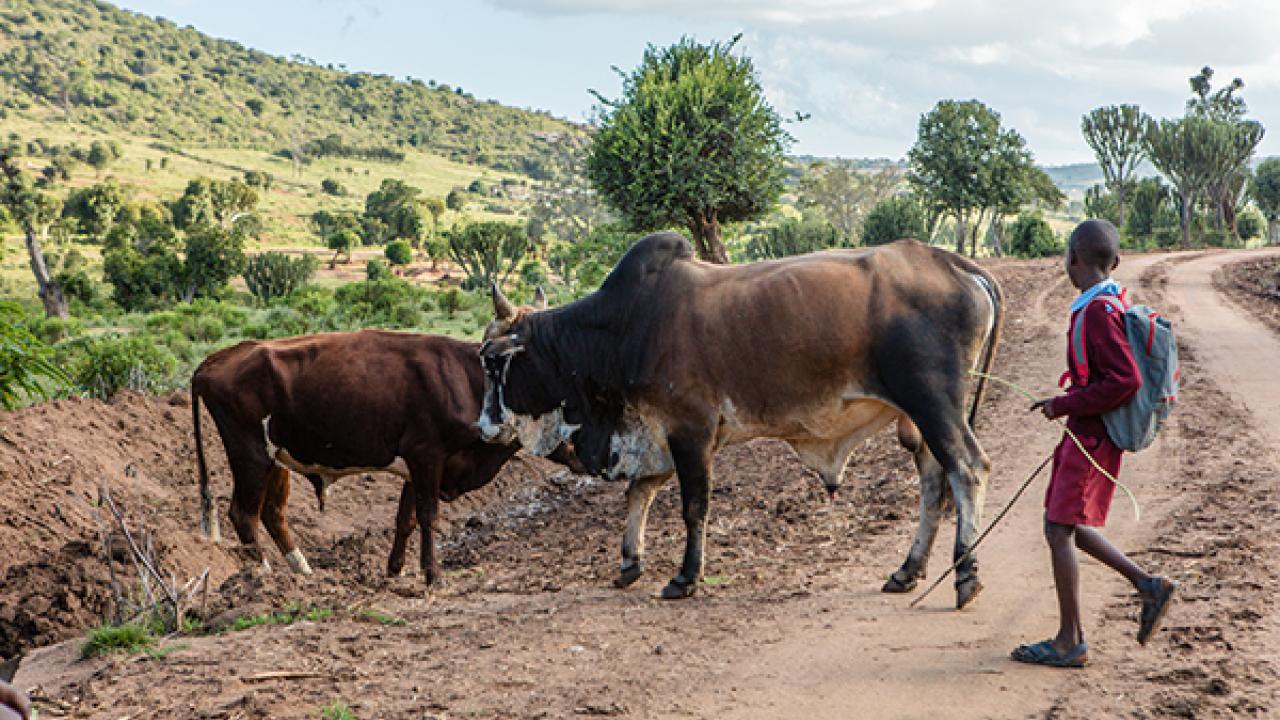
Several studies suggest that climate change aggravates conflict, including in the Horn of Africa, where worsening droughts deepen resource scarcity and increase pressure on grazing lands. Livestock insurance can offer an attractive way for pastoralist households to manage their livelihood risk against weather-related shocks, but insurance's relationship with conflict is not well understood. This project, supported in part by the MRR Innovation Lab, tests whether Index-Based Livestock Insurance and conflict-mitigating interventions reduce conflict in the drylands of Ethiopia and Kenya.
Project Overview
Lead Principal Investigator: Glenn Harrison, Center for the Economic Analysis of Risk (CEAR), Georgia State University
Project Partners: Cornell University, International Committee of the Red Cross (ICRC) Ethiopia, International Livestock Research Institute (ILRI), University of Amsterdam, University of Nairobi, Utrecht University, Wageningen University, World Bank
Development Innovation: Insurance and conflict-mitigating interventions
Commodity: Livestock
Targeted Population: Pastoralist households
Country/Location: Southern Ethiopia and Northern Kenya
Timeline: 2023-2025
Funding: $755,532 (USAID)
The Challenge
Growing evidence suggests that climate change aggravates conflict, especially in the Sahel and Horn of Africa. Amid worsening droughts, the amount of land suitable for grazing shrinks and pressure intensifies on what remains, leading to further competition and resource degradation. Conflict can emerge as common resources are threatened. At the same time, cooperation can be necessary for ensuring continued access to scare resources, and disincentivize participation in conflict. While the relationship between climate change and conflict is complex, real concern exists that increasingly severe consequences of climate change will amplify conflict.
In the drylands of Ethiopia and Kenya, Index-Based Livestock Insurance (IBLI) provides payouts to herders if the quality of pasture falls below a certain threshold. IBLI is one of the most successful programs of its kind, evidenced by comparatively high take-up rates and field trials that confirm positive direct impacts on productive investments and ex-post coping.[1]
However, the indirect relationship between insurance and conflict may be less positive. Formal insurance may undermine informal agreements and cooperation between groups.[2] Insurance might also increase conflict by encouraging intensification in the form of keeping larger herds, which puts additional pressure on shared grazing and water resources.[3]
If insurance has an aggravating effect on conflict, addressing drought-related poverty in these and other vulnerable and conflict-prone areas may require a two-pronged approach that explicitly addresses conflict as well as weather shocks.
Research Design
This project in Kenya and Ethiopia, supported in part by the MRR Innovation Lab, includes qualitative research and a randomized encouragement experiment. The trial tests the extent to which formal insurance affects conflict, and whether its potential effects can be changed (i.e. aggravating effects mitigated, or mitigating effects strengthened) by introducing a conflict-mitigating intervention. The research examines conflict within and between households and communities.
The study's definition of conflict has been refined through qualitative research as "actions that led to harm, destruction or prevention of access to assets or resources, or physical violence."
Researchers will compare conflict outcomes among four groups receiving different combinations of intervention: 1) IBLI and conflict-mitigating intervention, 2) IBLI only, 3) Conflict-mitigating intervention only, and 4) No intervention. The study will use random encouragement for uptake of IBLI. Observable variation in the extent to which weather shocks impact households will enable rigorous identification of the link between weather shocks and conflict.
Development Impact
Resilience is prominent in the USAID Country Development Cooperation Strategies (CDCS) for Ethiopia and Kenya, and Feed the Future invests in both countries. This research aligns with USAID Ethiopia CDCS (2019-2024) “Development Object 2: Resilience of vulnerable populations to key shocks increased,” as well as USAID Kenya CDCS (2020-2025) “Development Object 2: Resilience of vulnerable populations and environments improved.”
Both worsening climate change and increasing conflict could have serious consequences for poverty, but addressing them separately may not be effective. While IBLI shows potential to improve household resilience amid weather shocks, expanding its reach into new areas – some that are even more prone to conflict – requires understanding its impact on conflict. If IBLI aggravates or has no impact on conflict, identifying a conflict-mitigating and scalable intervention that synergizes with IBLI would have large benefits for poverty reduction and resilience in the drylands.
[1] Janzen, S.A. et al. 2019. “After the drought: The impact of microinsurance on consumption smoothing and asset protection.” American Journal of Agricultural Economics.
[2] Ng’ang’a, K. S., et al. 2016. “Livestock wealth and social capital as insurance against climate risk: A case study of Samburu County in Kenya.” Agricultural Systems.
[3] Bulte, E.H., et al, 2021. “The Welfare Effects of Index-Based Livestock Insurance Livestock Herding on Communal Lands. Environmental and Resource Economics.
This report is made possible by the generous support of the American people through the United States Agency for International Development (USAID) cooperative agreement 7200AA19LE00004. The contents are the responsibility of the Feed the Future Innovation Lab for Markets, Risk and Resilience and do not necessarily reflect the views of USAID or the United States Government.
